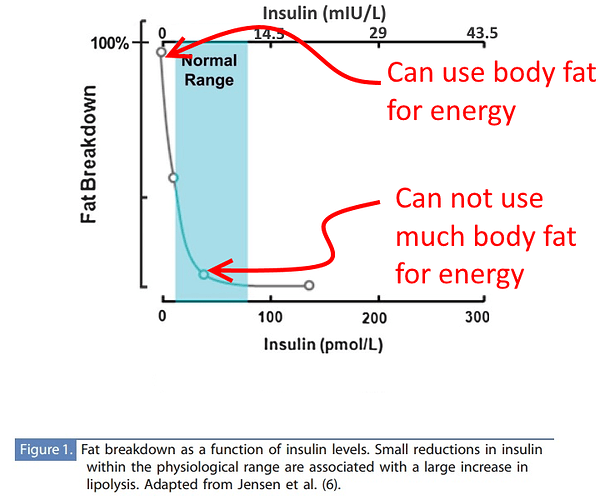Yeah. I found Mark Sisson very plebeian in his inability to understand what insulin resistance can do to a body. He didn’t seem to understand how hard we struggle to stay in ketosis, monitoring not only carb intake, but also protein intake and insulin levels. He implied that it was so easy to just be in ketosis, even with carb intakes well above 50-100g a day!
This week’s LLVLC episode with Mark Sisson
Agreed. Jimmy did a good job by poking him on this by referring to him and other studs as “unicorns.”
I didn’t think it was terribly cringey. Jimmy went there by questioning Mark’s statements about how “easy” one can go in and out of ketosis. And, I think it’d be disingenuous for Mark to ignore that Jimmy still struggles with his weight. Heck, Jimmy just posted pictures of moldy-asbestos tiles from his house and commented that it might have had something to do with his current weight issues. I give Jimmy mad props for not hiding behind his struggles. I wouldn’t/couldn’t be that brave. So, for Mark to “go there” with someone who’s genuine and honest about his struggles didn’t give me any pause.
We’ll see. The number one recommendation by Mark was to reduce calories from 2500 to 1800 or so. I found Mark’s references to the law of thermodynamics and “deficits” needed to lose weight interesting given that those terms have a CICO-sound to them. He often said it’s “not calories in calories out,” and did discuss brown fat in passing, but I want to listen to that portion again to see if I can understand the basis for the recommendation that Jimmy reduce calories.
I will defo listen to this tomorrow but if Mark referred to basically CICO he has never watched a Robert Lustig vid has he ? Really telling Jimmy to go form 2500 (normal for a man) to 1800 calories a day, what ???
Jimmy has a problem being like he is in our sphere as he is anatomy amongst so many on keto and people do question him on that. I personally think he may have to go zero carb for a while and just remove all carbs from his diet, maybe so insulin resistant that he has no choice.
It was much more complicated/nuanced than that. You’ll see when you listen to it. I’ll need to re-listen to try and reconcile the statements he’s making.
Also, Mark’s angle on keto for his new book is that he calls it the “Keto Zone” whereby one can go in and out of the “ketosis zone” as desired or needed. Jimmy properly pressed him on this premise, and stated that this in/out movement is easier said than done. Mark seemed genuinely surprised to hear that it takes some people a few days to “get back into ketosis” after going off-plan.
He was surprised at first. He later seemed to think it’s the person’s fault for not being able to get back into ketosis quickly. He was oblivious and uncaring.
I think it’s a common human conceit. to identify what you think worked for you, then assume it should work that way for everyone else … and if it doesn’t then they aren’t trying as hard as you.
It’s what Carl and I do tho to be honest … we tell you what worked for us, and what science can describe the mechanism. But we do try to understand why we are all different one from another and what scientific explanations could describe that.
Mark Sisson is likely incorrect that all humans respond to caloric deficit by maintaining metabolic rate and reducing energy storage. If they have low fasted insulin then that would make sense as what is propping up storage is a net energy surplus. If however they have high fasted insulin then the opposite happens, their high insulin causes adipose tissue to hold onto energy and their metabolism goes looking for other budgetary cuts to make.
Kevin Halls followup of the biggest loser competition showed this. They got insulin resistant overweight people burning 2500 kCal/day and imposed a caloric restriction upon them and they lost weight and their metabolic rate dropped to 2000 kCal/day. 6 years later they put all the weight back on and now they were MORE insultin resistant and had less lean mass than at the beginning of the competition and now their metabolic rate had dropped further to 1900 kCal/day … yet they were still eating a high protein diet and exercising as hard as they had at the end of the competition.
Their metabolic rate dropped and they started using protein for energy because their high insulin fought energy use from storage.
I suspect that Mark has a book to sell about his new invention called the Ketogenic zone where you can eat 40-110g of carbs regularly and be making ketones the next day after a quick workout. I also suspect it will work for about 15% of people.
Mark did state that worrying about calories when your insulin is high is useless. He specifically mentioned the Biggest Loser as a model for this failed idea. His approach for weight loss is first train your body to be good at burning fat (low insulin), and only then look at reducing your calories to spur on fat loss. I realize this may not come easily to some people, but I wonder what Jimmy did in the first place a decade+ ago to lose all his weight.
The problem Mark seems to have is he’s been metabolically healthy for so long it seems to surprise him that others might not be the same, lol.
I totally think calorie reduction works if your basal insulin is low, specifically for the goal of fat loss. If your goal is reversal of chronic disease than it’s meaningless. To me the question is how to do it in the most pleasant way possible that can be sustained for a while. My personal solution has been a carnivore approach.
This is a very good observation/summation of the tone that he set during this interview. It’ll be interesting to see how cavalierly his book deals with the real struggles of those with insulin dysfunction. I give props to Jimmy, again, for calling him out on many statements and trying to keep him honest/play devil’s advocate.
I listened to Mark on another podcast recently with a different host and honestly I agree with @richard, this will work for maybe 15% of the people. I would go further and say it will probably be the same ones who could have lost weight on WW.
I think I may even have posted something the next day questioning the idea of drifting in and out of ketosis. It is a bad idea for the insulin resistant, especially since the one thing that keeps me honest is the idea of spiking insulin if I cheat. Sort of like the alcoholic’s one drink or the smoker’s one hit of nicotine.
The other 85% will go on, will get a lot of hunger, will not be in ketosis and will give up after a binge and we will hear again about why ketosis does not work
My carnivore experiment was a rousing success. I not only broke a long-time plateau, but really feel like I went to another level in repairing my metabolism. I have had a very easy time keeping off what I lost during my two-ish months of ZC even though I’ve had more carbs in the last two months than I’ve had in the previous year (wedding, honeymoon and new wife not completely on board).
It seems like Jimmy has tried everything else, I wonder if a couple months of ZC would help him with his insulin resistance.
This last weekend, I located and eradicated an insidious mold source in my home (annoying because I am assiduously clean) that may have contributed to a few mystifying symptoms that cropped up in the last month: rapid weight gain, depression, bizarre sneezing jags, a few brief, ice-pick headaches, impaired concentration reading and writing, impaired breathing during all our forest fire smoke in Oregon.
That last one is significant because I LOVE woodsmoke and can and will stand right in it just to marinate my clothes in the scent. Never coughed once in 47 years of that; now I’ve got respiratory distress from a little reduced air quality? WTF?
I’m blaming the mold for all of it and doing an n=1 with N acetyl cysteine for a month. Tick, tock.
Very interesting/scary. Sounds like a nasty inflammatory/systemic response! Fascinating stuff, and there may be something to it…best of luck!
http://www.sternmold.com/mold-and-health/mold-related-illness.php
P.S. For those keeping score at home, Jimmy’s floor didn’t have mold. Just looked like it. Very good/lucky outcome for him.
Yeah, I’d been faithfully blaming myself for all my symptoms (my family crest is an image of two people hitting themselves in their own faces and the other two cheering them on) even though I’ve been die-hard keto for almost a year now without pause.
Funny how I was willing to put up with every source of irritation except the pants shrinking: Aw, hell, naw!
My emotional legacy in twenty seconds:
One big thing that changes for men as we age is how much testosterone we produce. That,in turn,can have a big effect on how energy is partitioned, used, and/or stored.
Not saying I know that’s at issue here, but I do know I found it much easier to lose weight on low carb in my late 20s than I do in my late 40s.
Well Jimmy is one of us fat guys, which is why I can relate to him, whereas Mark is one of those skinny guys, which I can’t relate to as I’ve never been one (except briefly as a teenager).
I agree that popping in and out of ketosis will not work well for many people, but I have to believe that evolutionarily speaking, that metabolic flexibility, more than permanent ketosis, is the natural state. And that the number of people it would work for is higher than 15%.
Before agriculture, people ate fruits and honey whenever they could get them. Find a patch of berries and gorge on them. Then when they were gone, back to hunting and gathering, probably in ketosis. This would be more common in summer and autumn. Spring and winter diets would be significantly different in temperate zones, but less so in tropical zones.
For example, Kitavans live on a tropical island and eat root vegetables (yam, sweet potato, taro, tapioca), fruit (banana, papaya, pineapple, mango, guava, watermelon, pumpkin), vegetables, fish and coconuts. They get about 70% of their calories from carbs, yet are lean and healthy. The caveat is that their carbs are not processed and not grains. Okinawans are eat even more carbs. The traditional Okinawan diet was about 80 percent carbohydrates. Before 1940 Okinawans also consumed fish at least three times per week together with seven servings of vegetables and maybe one or two servings of grain per day. They also ate two servings of flavonoid-rich soy, usually in the form of tofu. Perhaps there are genetic variations that explain how these cultures thrive on high-carb diets, but I haven’t seen that anywhere.
The fact that the worldwide percentage of people who are overweight according to BMI in 2014 was less than 40% also suggests to me that the number that a cyclical and seasonal approach would work for would be significantly higher than 15%. How much higher, if at all, I have no idea. I think the number would probably be fairly low in areas that have the highest obesity rates and higher in areas with low obesity rates, assuming that obesity rate is correlated with insulin resistance.
Just my 2 cents.


